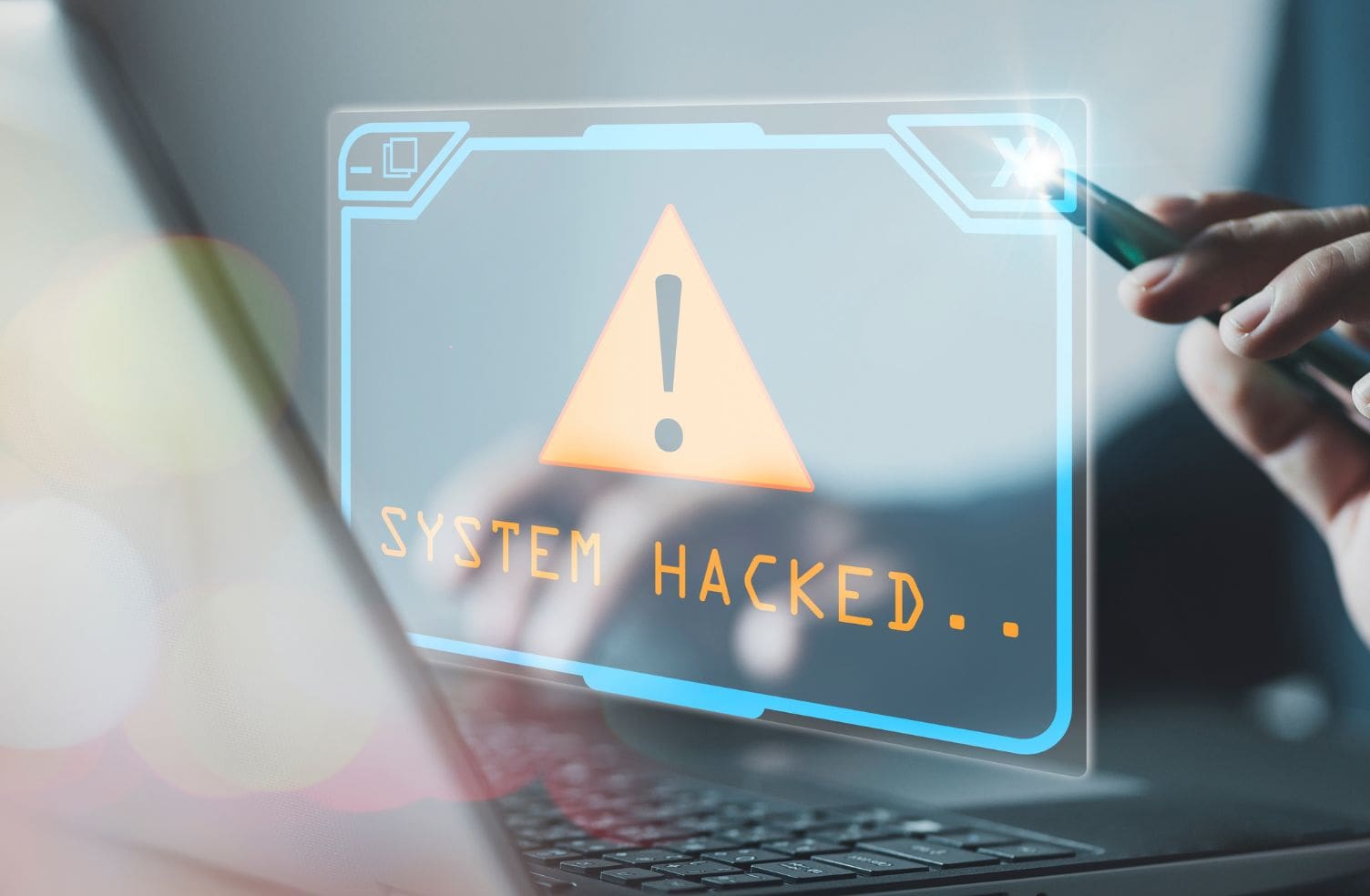
Protecting your digital identity is about more than taking reactive actions when an attack occurs.
While bolstering your security and reducing the risk of a cyberattack is always the best course of action, it’s entirely possible that even the best defenses can be breached. This is why learning what to do if you’re hacked is so important.
9 Steps to Take If You Are Hacked
An unfortunate truth of the modern world is that cyberattacks are increasing in frequency against businesses of all industries. In 2023 alone, over 353 million individuals were directly affected by data compromises including breaches, leakage, and exposure, going to show how pervasive this problem truly is.
The following nine of those steps will help to ensure your business becomes operational again as soon as possible:
1. Stay Calm and Act Quickly
A quick response is the best way to ensure minimal data loss and damage to your systems. The second you notice that an attack has occurred or even if defenses are being probed, take the time to immediately contact your IT team or partner to inform them of the issue. Take your network offline so that the incident is isolated, but be sure not to turn off the device or reboot it, as this may cause permanent data loss.
2. Secure Your Accounts
While your IT team begins to tackle the issue at its source, your focus should be on securing as many accounts as possible. Begin to change passwords to accounts that have not been directly impacted. An excellent way to know if an account has been compromised is if you have multi-factor authentication enabled and are alerted to someone attempting to access the account, but as a general rule of thumb, simply change as many passwords as possible, starting with the accounts with the most data.
3. Notify Relevant Parties
Any partners, businesses, suppliers, vendors, or any other groups who may have been impacted by the attack must be alerted as soon as possible. Even if you are fairly certain their data and privacy are secure, you cannot risk your reputation by attempting to brush the issue under the rug. Inform the parties that an attack has occurred, is in the process of being fixed, and whether or not their accounts are directly impacted.
4. Scan Your Devices for Malware
Assuming you don’t have a robust IT team and are working to combat the cyberattack all by yourself, start by scanning all devices for malware. Any simple malware detection software will work, and it doesn’t need to be top-of-the-line in this situation. This can help you determine the source of the breach so that you can begin to remedy it.
5. Review Your Accounts and Transactions
Following the attack, check your bank accounts and reconcile your transactions. This process will help you see which accounts were breached and which have not been so that you can focus on contacting the relevant fraud services as soon as possible.
6. Be Wary of Phishing Attempts
In general, it’s a good rule of thumb to be aware of common phishing strategies in the future to prevent an attack from happening again. Phishing elicits an emotional response from the target to get them to click a link or some other trap that can allow malware in. Beware of any suspicious emails that claim immediate action is required; otherwise, something drastic may occur.
7. Consider Seeking Professional Help
For businesses without a robust IT team, cyberattacks can be devastating from both a monetary and reputational standpoint. Having the assistance of a qualified team, such as Warwick, to serve in an advisory role on all IT-related matters can help bolster your network security.
8. Learn from the Experience
Once you determine how and why the attack occurred, ensure you do not repeat the same mistakes that led to it. Whether that means implementing mandatory employee training, plugging holes in your network, hiring more IT staff, or something else, ensure that something changes within your organization following the attack.
9. Stay Vigilant
Above all else, the final and most important tip is always to stay vigilant when working online. Data is essential to all organizations, and a cyberattacker can use that data against your organization for ransom and other purposes. Learn the common signs that someone is attempting to hack your network so that you can stop the issue before it becomes one.
Bolster the security of your network today!
No business should suffer the headache of a cyberattack, but the sad truth is that these events are becoming far more common. From thousands upon thousands of dollars in damages to reputational setbacks, cyberattacks can drastically impact a business. Using the tips above, you can respond effectively when an attack occurs, but it’s only the tip of the iceberg. For those with a business located in the Akron, Columbus, or Cleveland areas and needing assistance in bolstering your networks and security, reach out to us at Warwick. Our expertise in cybersecurity and cloud computing means we can advise you on the best course of action for protecting your business.

 800.860.0300
800.860.0300  800.860.0300
800.860.0300 







